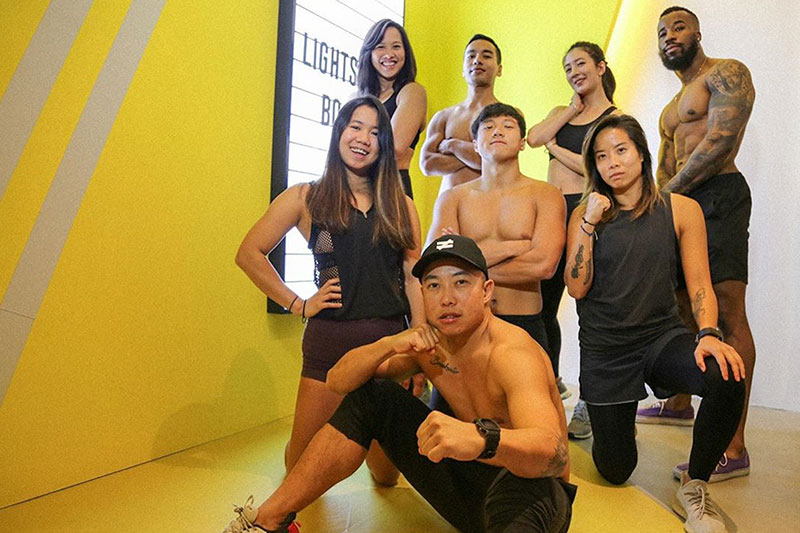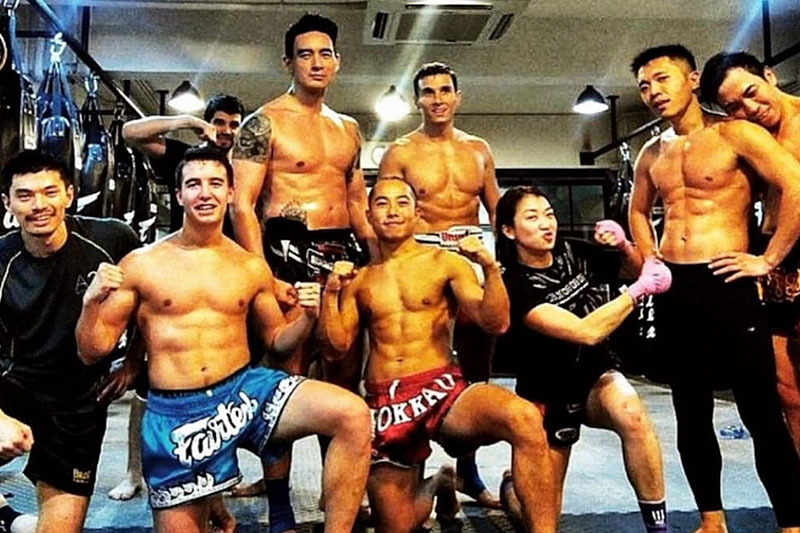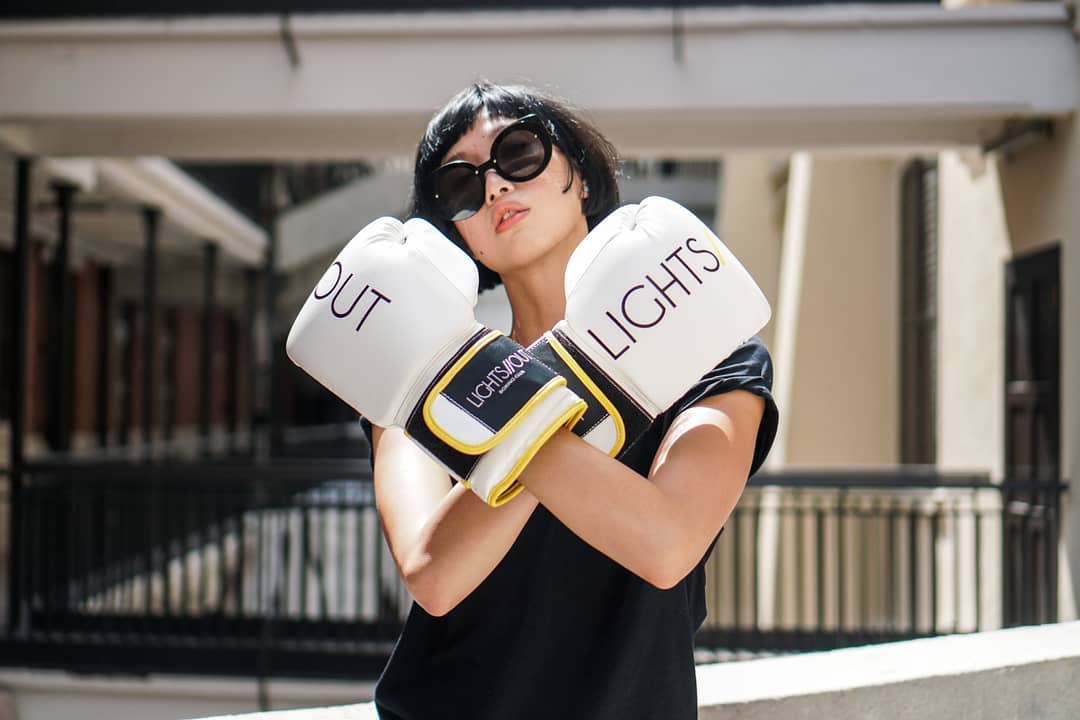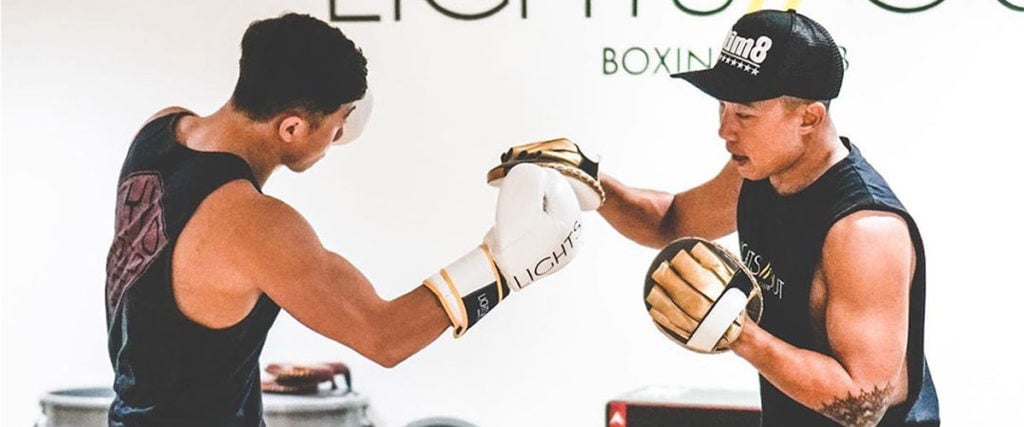As the man behind successful fitness studios Warrior and LightsOut, Billy Tam embodies the belief that athletes make for great entrepreneurs.
Billy Tam is a leading pioneer of health and fitness in Hong Kong. His martial arts gym Warrior Hong Kong was founded back in 2013, quickly earning a reputation as one of the city’s most esteemed Muay Thai and boxing studios. Four years later, Billy disrupted Hong Kong’s fitness scene once again with the opening of Lights Out, an immersive boxing gym that mirrors the nightclub experience through its high-energy soundtracks and atmospheric lights.
From discipline and control to training his mind to be adaptable, Billy discusses how a lifelong love in sports has honed transferrable skills that have allowed him to succeed as an entrepreneur time and time again.
How has boxing shaped your philosophy on life?
To me, boxing is so much more than just a combat sport – it’s a philosophy of living. Even though I’ve been doing it for so many years, I don’t feel like an expert by any means. There’s always something more to learn. It’s something that I’m really passionate about because it’s taught me so much about body awareness, control, self-defence and how to train my mind. I’ve done some fights in my time, and training how to read your opponent is almost like playing a chess game. Because it’s done so much for me, I really want to share my love for boxing and the martial arts with the masses. It’s a great way to destress and train the mind, as well as being an effective way to get into shape very quickly.

To what extent has your background in sports influenced your approach to the business world?
I would say growing up playing team sports has definitely carried through to the way I’ve run my businesses now. For example, it has made me realise that you can’t always do everything yourself – it’s helped me to learn to trust others and be able to work well within a team. EQ is also very important for juggling different personalities within a small organisation. Maybe because of my upbringing in sports, I am naturally a very optimistic, driven and positive person. I would say it’s also shaped my internal drive, self-awareness, and competition with my own self.
Which sports, in particular, made a greater impact on your outlook?
Golf is a game that is so ridiculously frustrating for so many people. It’s shaped me to just stay in the moment. After every bad shot, I’ve got to leave it behind and continue moving forward. Carrying that to the way my business is run, whenever I have a bad day or something negative happens, I know that there’s no point in dwelling on it. I just have to accept whatever happened, move on, and quickly try to come up with solutions.
Another sport that has always influenced me is surfing. Surfing taught me how to be adaptable because sometimes, you just can’t control what happens. Right now is a great example – nature decided that COVID-19 is going to hit, so we had to close our gyms and adapt to the circumstances.
Can you expand more on how sports has shaped your work ethic?
As an entrepreneur, it’s one of those jobs where you never really get to stop working. For pretty much 24 hours a day, I’m working to some degree. Even when I don’t physically have something to do, my mind is constantly thinking about how I can improve the business or what my competitors are doing better. And I think that’s stemmed from the way I played sports. I would always analyse my own skills and try to improve myself, thinking about how to get better. I don’t think there’s a single athlete in the world who thinks they’re “good enough” already – you’re always striving to be better. Similarly, as a business owner, I’m just constantly trying to improve all the time, but I never actually feel like I’m working.

What are the biggest challenges of operating in the fitness industry?
One challenge is definitely trying to stay at the forefront of fitness whilst staying true and authentic to who I am and what my brand represents. The fitness industry is very different now compared to when I first started Warrior. It’s much more competitive, with companies coming in from all angles, and everyone trying to one-up each other through marketing platforms like social media. It’s very easy to oversell your brand beyond what the actual product is. So, make sure that your product actually matches your marketing, and is also able to reach the right audience.
Tell me about a time where you’ve had to make a difficult business decision.
Personally, one of the biggest mental challenges I went through was back in 2016 when my business was not doing very well. We had been running the business for three years at this point and decided it was time to open a second branch called “Warrior Academy”. We had a good business model – but the location we chose wasn’t. In that year and a half, we didn’t hit any of our numbers and it got to a point where being able to cover basic expenses was difficult.
Luckily, even though our numbers weren’t great, there was a much bigger gym that loved the design and concept behind Warrior Academy and wanted to buy us out. We sold the gym, and the majority of my management team and trainers went to join the new organisation. I was put in the position of having to decide whether to side with this bigger, corporate gym as well.
The pursuits of my fitness boutique always came with instability, whereas this offer would’ve given me a guaranteed salary and benefits. In the end, I stood my ground and decided not to go. I held true to my values and continued to build Warrior, which marked a very big turning point in my life. And I haven’t looked back since.
Any advice for aspiring entrepreneurs?
Unless you have truly found a passion or something that allows you to wake up every morning and be happy, I would not choose to become an entrepreneur. Everyone sees the glitz and the glamour, but nobody actually sees the grinding and all the hard work that goes on behind the scenes. We’re working 24 hours a day, whilst everyone else is asleep. It’s a lonely journey, and a lot of the time, people don’t realise that.
Success to me is waking up and being happy every single morning. So unless you’re really passionate about it, and you really think it’s something that’s going to make you happy, think two, three, four times before you decide to embark on the entrepreneurial journey.

How have you adapted to COVID-19?
Sometimes, things happen, and you know, if you dwell on it for too long, you’ll start to miss opportunities. It’s very easy for a lot of my trainers to be down right now because everyone’s livelihood is based on teaching classes. I’m not saying, “Don’t be upset or sad.” We’re not robots. We all have emotions, but I’m trying to be present and to stay positive for my team.
With all these regulations changing on a constant basis, I’m just reacting to whatever comes our way. My gyms got shut down, so we’re offering on-demand classes available for subscription, and you can get access to an entire library of workouts that we film in our studios. On top of that, we’re developing online personal training with customised programmes for your home.
When the crisis hit, I kept asking myself how to keep moving forward. My advice would be to never stay stagnant – don’t just sit there and not do anything; just do something.
How do you see the fitness industry evolving in the next 5-10 years?
The online world of fitness is going to grow massively. Gyms will have to pivot their businesses to cater to clients through digital platforms and tech-based models. Nowadays, a lot of clients have become more educated in terms of what fitness is and what it means to them. So anyone who wants to enter the fitness realm will have to be that much more knowledgeable and niche. Long gone are the days where you can just throw out any workout for people to follow. You have to be very specific and clear about what you have to offer.
Future plans?
My long-term plan is to grow my businesses beyond Hong Kong. I would love to explore China and other countries around Southeast Asia, such as Singapore and Taiwan. They’re very different in terms of developmental fitness, but I think it’s a great market that’s ripe for development.
Related Articles
BASE: How Fitness Founder Jack Thomas Won Asia’s Gym of the Year
Female Fitness Warrior Talks Strength, Resilience & Career After Battling Cancer
One Man’s Journey: Changing How We Talk About Men’s Mental Health





